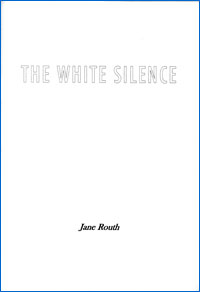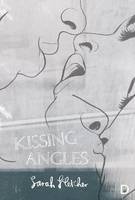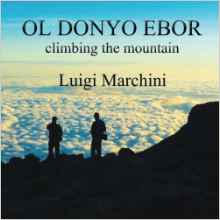The White Silence by Jane Routh
– Reviewed by JPL –
Imagine, if you will, what the media response would be to a human mission to Mars: interminable news interviews, discussions of the politics and scientific challenge, the opportunity versus the cost of investing so much, with so many other pressing matters. Sir John Franklin’s ill-fated attempt to discover the North-West Passage, which Jane Routh responds to in The White Silence, was a Victorian equivalent. It was a staple in folk clubs when introducing the ballad ‘Lord Franklin’, quoted at the start of the pamphlet, to say it would have been better if Franklin hadn’t over-loaded ships with unnecessary baubles and treasures, and taken more food. In such enterprises the apocryphal has an ineluctable place; but Jane Routh evokes far more than this, delineating and reflecting, in thirteen pages of sustained, accessible and accomplished lyricism, and going beyond the fossilized past.
Even if there were a passage, Scoresby carped
So what? – You’d have to overwinter in the ice:
it would still be faster round the Cape.
And safer. But William Scoresby
was a whaler. Of no account.[Franklin, in prospect]
Routh reaches a frozen present, the moment of blank canvas or page – the thrill of possible discovery, if only the missing piece of the jigsaw could be realized, with a cold and haunting dread of failure looming, time passing by and ever gone. Read on.
Wake up, Sir John, and shape yourself.
Wherever they buried you, hacking
The permafrost, break out: it’s soft now.
Your passage is dark and open water.[Franklin, cryogenically preserved]
Jane Routh has previously published other collections, in which certain themes have been to the fore – our relationships with the environment, how we manage in it and with animals. Her poetry also has a moral strength and purpose. In Lancashire Life [23.10.14], she writes, “ I have been interested in memory for a long time…. our memories do not record facts but explanations for our lives…keeping the memories that I value…I will not lose them as I have written them down.”
What they charted was the nineteenth century’s
Flatteries, friendships and obligations
– a sea for Beaufort, an island for Banks –
as if rock and ice and vastness
had no reality without their names;
as if the landscape did not know itself.[On reaching the Arctic map]
This investigation into Franklin’s expedition confronts ‘the white silence’, ‘the grip of ice’, the ice that will not let go, and the resonances of being that abound in such confrontations.
Routh’s titles give hints – ‘Franklin, in prospect’, ‘Three Photographs, 1845’, ‘On reading the Arctic map’, ’Franklin, ice-bound’, ’Franklin, in retrospect’, ‘Franklin, the evidence’, ‘Franklin, cryogenically preserved’, ’Sir John Richardson’, ‘Franklin, a postscript’, ‘And afterwards’. We have not found him. Only recently were his ships discovered, and as recently televised. The mystery of ends provides such resonance – consider Mallory and Irvine, Captain Oates and Shackleton. His expedition is tackled chronologically, in the round, from ballad and prospect to looking back – through the many meanings which poetry simultaneously allows, Empson-like, a contemporary significance.
Imagine ice.
Imagine cold.
Imagine a ship held fast all winter long.Start again: you have to remember
its an Arctic winter: no daylight.
How to picture such darkness?[Franklin, ice-bound]
Structure varies between the poems, but it’s as if the reader is part of a charged conversation and each poem answers the question the reader has about the whole matter. The lines move as if there is an exchange between poet and reader – and in reading, we are gathered into this world where close observation, humour and asides draw us to the matter itself.
Each poem is its own view, like walking around a mountain and taking in each vista, except this is one also conducted in retrospect, ending with ‘And Afterwards’, in which evidence of the expedition is seen today.
Wayleave Press and other heroic publishers, despite the difficulty of sustaining profitability, deliver a lifeline of support and encouragement to poets that is invaluable. Readers are provided with the opportunity, for the price of a pint or a small round, to discover a new poetic voice or poetry of quality. It’s a win-win:
And that’s enough: what we want is the other
terror, something we can’t know,
Something greater that resists us –
a white silence we can’t fathom, that compels
imagination, to conceive its questions.(O Lord, give us back our ice.)
[Franklin, a postscript]





